

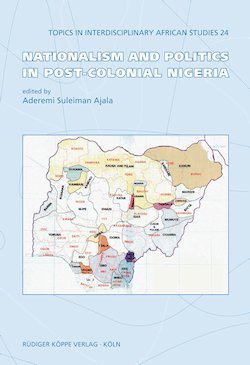
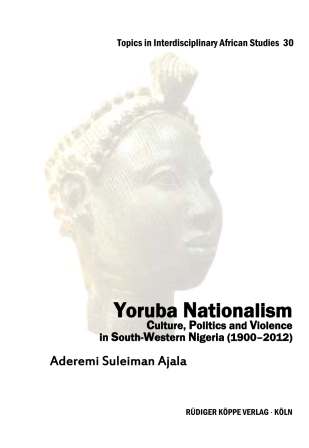
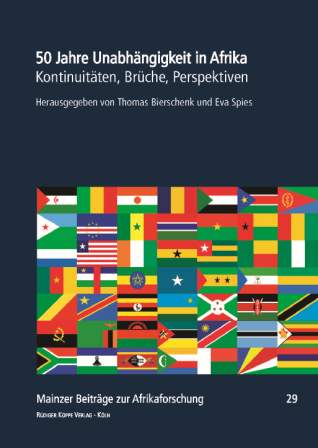
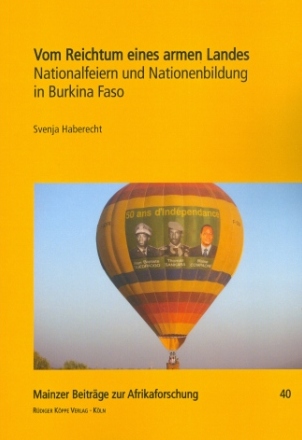
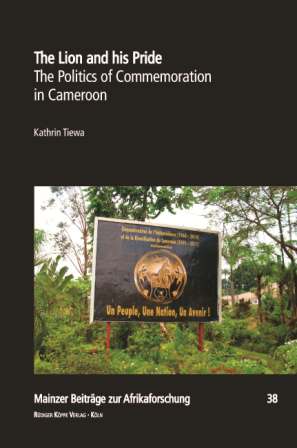
In October 2010, when Nigeria marked its 50th year of independence as a sovereign state, Nigerian statehood was still threatened by a number of problems; inter alia ethnic discontent expressed in form of locally conceived nationalism against the state and among different ethnic groups in Nigeria remains the principal. At independence in the 1960s, only three ethnic groups, the Hausa/Fulani, Igbo and Yoruba, were recognised in Nigerian politics, but post-independent politics has shown that it is not only the three major ethnic groups that are politically strong in using their ethnic consciousness to influence the state’s interests.
In the multi-ethnic Federal Republic of Nigeria, the federating units composed of many diverse ethnic groups resort to locally conceived nationalism in political relationships. Apart from rendering the Nigerian nation-state weak, such relationships have in many occasions resulted in widespread violence.
The focus of this book is to examine the various factors which influence nationalism in Nigeria and which in turn affect the process of nation-building. The volume emerged from an international conference titled Nigeria @50: Nationalism and Politics in Post-Colonial Nigeria which was held at the University of Ibadan, Nigeria, in October 2010, and which was to mark Nigeria’s 50th year of independence. The papers that were presented at the conference form the content of this book.
Questions that encouraged the holding of the conference were e.g. as follows: How do we define a nation and a nation-state in the Nigerian case? In what way was nationalism expressed within the first 50 years of Nigerian independence? How did politics influence the expression of nationalism in Nigeria? Can Nigeria develop a broad-based nationalism that will put all its diverse interests in a strong nation-state in form of civic nationalism?
CONTENTS
Background
Aderemi Suleiman Ajala: Introduction
Chukwuemeka Eze Malachy: Ethnic Identity, Party Politics and the Nigerian Project, 1960–2010 – An Appraisal
Siyan Oyeweso: Nigeria at Fifty – The Prospects and Challenges of Nation-Building
Part One – State, Politics and Nation-Building: Conceptual Discussions
Christine Fricke: Doing the Nation – Performative and Everyday Practices of National Identities in Africa
Moses Metumara Duruji: Civic – The Ethnicity–Nationalism Dichotomy: Untangling the Renewed Demand for an Autonomous Biafran State in Nigeria
Ikechukwu Bernard Okafor: Legal Perspectives of Nationalism in Nigeria
Adetunji Ojo Ogunyemi: Nation-Building in Nigeria – Conflict between the Rights of the Indigene and the Citizen
Part Two – Local Traditions, the Media and Nationalism in Nigeria
Shina Alimi: The Nigerian Tribune and Agitation for Human Rights during the First and Second Republics
Mufutau Temitayo Lamidi: Linguistic Nationalism and the Domesticated Use of English in the Naijaworld and Nairaland Virtual Communities
Aderemi Suleiman Ajala: A jí s’ebí Òyó – Yoruba Perceptions of Nationalism in Nigerian National Politics
Rasidi Akanji Okunola / Adediran Daniel Ikuomola:
Festival of Curses: A Traditional Crime Control Method in Edo State
Samuel Oluwole Ogundele: An Anthropo-Historical Analysis of Collective Memories for Nigerian Liberation in the 21st Century
Peter-Jazzy Ezeh: Ethnology in Nigeria’s Pre- and Post-Independence Nationalism
Part Three – Politics, Economy and Nationalism in Nigeria
Tunde Decker: Poverty in Post-Colonial Nigeria – Historical Postulation
Azeez Olusola Olaniyan: Violence and Identity Politics – The Sayawa of Northeastern Nigeria as a Case Study
Olumuyiwa Olusesan Familusi: Understanding the Implications of Ethnic Politics and Agitation for Social Stability in Nigeria
Akeem Ayofe Akinwale: Ethnocentrism and the Question of Nationalism in Nigeria
David Omeiza Moveh: The Exigence of Zoning the Presidency for Nation-Building in Nigeria
Sat Obiyan: Party Politics, Ethnicity and Nation-Building in Nigeria
Part Four – Religion, Gender and Nationalism in Nigeria
Ibrahim Umara / Garba Mohammed: Strategic Implications of the Boko Haram Insurgencies in Borno State Politics
Emmanuel Osewe Akuboh: Ethno-Religious Conflict in Northern Nigeria and its Implications for National Unity, 1999–2010
Seun Olutayo: Non-Feminization, Null Nationality – The Dilemma without Gender
About the editor of this volume:
Aderemi Suleiman Ajala holds a PhD in Cultural Anthropology of the Sociology Department, University of Ibadan (Nigeria). His research interests include public health, identity and politics, social movements in Yoruba land of Southwestern Nigeria, ethnography and theories in anthropology.
He is a recipient of some international grants and fellowships including the British Academy Fellowship (2006) and the Alexander von Humboldt Fellowship (2008–2009) and has published many articles and monographs on his research interests.
Under these links you will find publications by the volume editor and further studies of the independence of African countries and the time after:
Nigeria gehört ohne Zweifel zu jenen Ländern der Welt, denen im europäischen Raum heute nicht mehr die Aufmerksamkeit zuteil wird, die ihnen ob ihrer kontinentalen – in dem Fall: afrikanischen – Bedeutung eigentlich zukommen müsste. Seit seiner Unabhängigkeit 1960 hat Nigeria, das lange Zeit britische Kolonie war, nicht zuletzt wegen seiner immensen sprachlichen und kulturellen Vielfalt einen schwierigen nationalstaatlichen Konsolidierungsprozess durchlaufen. Dementsprechend kreist die zentrale Fragestellung des Bandes um die Problematik der nigerianischen Selbstwahrnehmung als Nationalstaat: „How do we define a nation and a nation-state in the Nigerian case?“ Die Autorinnen und Autoren des Bandes – deren Beiträge allesamt auf Präsentationen im Rahmen der Konferenz „Nigeria @50“ im Oktober 2010 an der Universität von Ibadan basieren – formulieren hierzu ein breites Spektrum an Interventionen. Neben der Analyse von historischen Faktoren, die die ethnische Heterogenität Nigerias bis heute beeinflussen, finden sich Beiträge zum Nation-Building, zu rechtlichen Aspekten der nationalen Unabhängigkeit, zur Praxis der medialen Vermittlung von Nationalismus bis hin zur Rolle von Kultur, Religion und Gender im postkolonialen Nigeria. Dass angesichts dieser Vielfalt von Problemfeldern „einfache“ Lösungen – wie die von Ikechukwu Bernard Okafor vorgeschlagenen pragmatische (sprich: subsidiäre) Verteilung von Steuereinnahmen, die den Gliedstaaten mehr Handlungs- und Gestaltungsspielräume einräumen soll – verfangen, scheint zweifelhaft. Denn ein solches Vorgehen könnte, gerade wegen der von Akeem Ayofe Akinwale diagnostizierten tiefgehenden ethnischen Spaltung des Landes, die offenbar häufig mit dem Gefühl des Ausschlusses von der politischen Macht einhergeht, gerade zu einem Auseinanderfallen Nigerias führen – und gerade nicht zu seinem Zusammenwachsen. Trotz dieser inhaltlichen Bandbreite der Beiträge sind sich die Autoren mehr im- als explizit dahingehend einig, dass eine nationalstaatliche und noch dazu eine demokratische Konsolidierung des Landes Zeit brauchen wird.
Matthias Lemke in Portal für Politikwissenschaft, www.pw-portal.de/index.php?option=com_lqm&query=6&Itemid=2&task=showresults&ID_Buch_Link=42435, 1
© 2026 by Rüdiger Köppe Verlag – www.koeppe.de